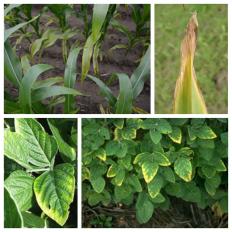DON’T CUT KEY NUTRIENTS TO CUT COSTS
Mar 23, 2021

“During tough economic times our natural reaction is to find places we can cut cost,” said John Swanson, Federated agronomist at the Ogilvie location. Nutrients are often considered a go-to option for reducing costs – and there’s good reason to not choose that option.
“We know we can’t cut nitrogen (N), but what about potassium (K)?” Swanson asked, answering his own question with these important facts:
- - K is a primary macronutrient and extremely important to plants;
- - K regulates water pressure in plant cells. It activates enzymes which affects protein, starch and ATP production. ATP can regulate the rate of photosynthesis. It is a critical “pulling force” for water, carbohydrates and nutrients in the xylem.
Swanson said, “We can add a lot of N, but if we are short of K, [it] may not get it adequately taken up into the plant. Having sufficient K allows plants to better withstand stress, insect damage, and plant diseases.”
Recent wet seasons have made it easy to forget the importance of critical soil test levels when drought conditions occur. Adequate moisture puts more K in the soil solution, making it easier for plants to take it up. However, when soils are dry, plants struggle to take up K. It’s important to have high K concentrations where the roots are growing.
K is relatively immobile in the soil; it will move to some extent in sands, but not much in clays. However, K is very mobile in the plants themselves. Even a “K deficient plant can remobilize K from the oldest leaves into the new growth,” said Swanson, which is “why in [K] deficient plants we see the deficiencies in leaf tips and margins” (see photos above).
Whether this year is wet or dry, potash applications can help mitigate nutrient deficiencies in the soil.
Your Federated Agronomist is ready to discuss critical K levels for your individual fields and can help you outline application plans. The U of M Extension service recommendations for potassium are good guidelines too, Swanson noted.